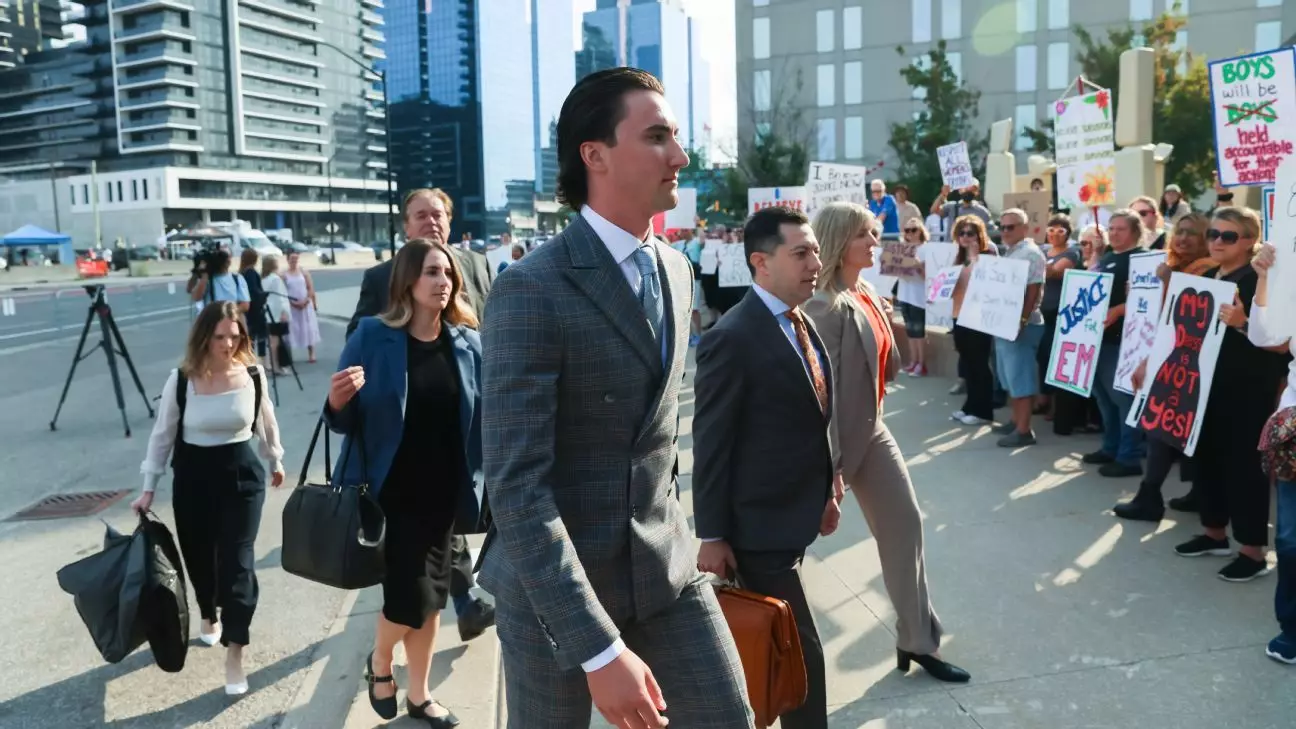In the wake of a landmark legal case involving five former junior hockey players, the decision not to appeal the ruling by the Canadian government marks a significant moment that extends beyond the courtroom. The decisions taken reflect not just the court’s judgment but also influence public trust and the future of the athletes involved. While the legal system aims to uphold fairness and thorough investigation, its decisions undeniably ripple into wider societal and professional realms, raising questions about accountability, rehabilitation, and the integrity of sporting communities.
The trial’s outcome centered on the credibility of testimonies, highlighting the complexities of subjective perception in courtrooms. Justice Maria Carroccia’s findings underline the importance of reliable evidence and the dangers of unfounded allegations. Her assessment suggests that emotional narratives, sometimes driven by inconsistencies, can overshadow facts, emphasizing the critical need for rigorous proof in sensitive cases. The decision not to pursue an appeal indicates confidence in the judicial process and its ability to deliver justice based on available evidence, yet it also leaves many pondering the influence of narrative construction over truth.
Consequences for the Athletes and the League
For the athletes involved—each of whom has spent years developing their careers—the verdict offers a mixture of relief and ongoing uncertainty. Although they have been formally acquitted, their professional prospects remain clouded by league policies and public opinion. The NHL’s stance, emphasizing ineligibility during review, reveals a broader tension between legal innocence and organizational discipline. The league’s hesitation to reinstate players highlights an internal struggle: balancing accountability with fairness.
The NHL Players’ Association’s assertion that players deserve a chance to return points to the systemic ambiguities in disciplinary procedures. There exists a delicate balance between protecting the rights of athletes and maintaining the sport’s integrity—especially in cases where the legal verdict might not align perfectly with league standards of conduct. Critics argue that such inconsistencies undermine confidence in the league’s ability to deliver just discipline, forcing stakeholders to question whether sporting organizations apply rules equitably or merely react to public sentiment.
The Cultural and Ethical Implications
Beyond the legal and professional implications, this case prompts a broader cultural reflection on how accusations of misconduct are handled within high-profile sports. The media’s role in shaping narratives, the emotional weight carried by victims and accused alike, and the societal expectations for swift justice all intertwine to create a complex environment that often leaves justice feeling incomplete.
While the court found the complainant’s testimony unreliable, the initial allegations inevitably cast a long shadow over the careers and reputations of the accused. This raises essential ethical questions about the presumption of innocence, the power of narrative, and the responsibility of institutions to protect both individuals’ rights and their organizational integrity. The case’s outcome underscores that justice is a nuanced process, one that demands cautious scrutiny, especially when public trust and personal futures are at stake.
In the end, this saga exemplifies the intricacies of accountability in contemporary sport—highlighting that victories in courtrooms are rarely final victories in the court of public opinion or professional opportunity.

